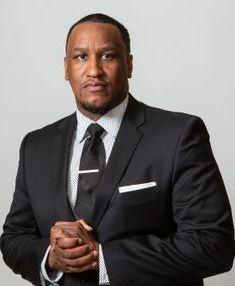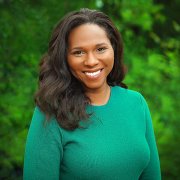The Black Church & Black History in America – Part 2
As we celebrate Black History Month, the church’s role in African American communities cannot be overstated. For centuries, the church has provided spiritual guidance and leadership but has also delivered social services to improve education, economic mobility, health, and wellness in Black communities.
Furthermore, churches have played a pivotal role in the African American struggles for freedom and civil rights, acting as a fierce advocate and haven during these movements. In the aftermath of George Floyd, Breonna Taylor, Ahmaud Arbery, and the nationwide protests of 2020, many churches increased their calls for social justice.
Meanwhile, as our nation continues to grapple with the impacts of COVID, Black communities have been disproportionately affected. Many Black churches have reimagined how to serve the needs of their communities during these unprecedented times.

Rev. Akil Dickens, Sr. Pastor, Emmanuel AME Church
In recognition of Black History Month, Givelify will explore the impact of the Black church. Our month-long series will feature Black faith leaders and their perspectives on the Black church, Black history, and where we go from here. This week, we hear from Reverend Akil Dickens, Sr. Pastor of Emmanuel AME Church in Durham, NC.
When you look back on American and Black history, how would you describe the importance of the Black church?
The Black church has always been the anchor of the community. During troubling times, it was the Black church that galvanized and brought people together from all different walks of faith for the common good.
So, in American history, the Black church has always played a significant and vital role in bringing about change. Whether we are dealing with political, social, or economic issues, whatever the case, wproblemhe church served as the symbolic place where people could come to build, strategize, mobilize, and affect change.
Even in 2021, when people are running for political office, where’s the first place candidates want to go? The Black church because we understand there is still power in the church.
It looks a little bit different today. We still have to hold on to our values and morals to come together for the common good of our local community to bring about change and to hold persons accountable.
>>Related article: The Black Church & Black History in America – Part 1<<
What role do you see Black churches playing in the social justice movement?
The Black church has always played a significant role in the social justice movement. It’s always been about bringing change. It’s always been on the front lines, whether protests, marches, or boycotts. But it was also about those who came out of the Black church.
When we think about the bus boycotts in Montgomery, AL, we all know Dr. Martin Luther King and Rosa Parks played vital positions, but many people never think about the name Jo Ann Robinson. She was a stewardess at an AME church in Montgomery, Alabama, and served as a math professor at Alabama State University; she was the key figure in galvanizing the movement of the Montgomery bus boycott.
In the church, we understand that a change must come. We can’t just sit here and act like there’s nothing wrong. We have to do something about it.
The church is not only a staple in the community, but social justice and change come from the church. Because that’s what Christ was all about. Social justice is paramount in the Black church. It always has, and it should always be.
What advice would you give other church leaders as they navigate this moment?
Do not be afraid of the moment. One of the challenging things with the church, so many are so scared of being stretched out of their comfort zone.
There was a show that I used to watch when I was young called Sesame Street. There was a group of characters on the show called the Yerp Yerps. And the Yerp Yerps came from outer space, and they had access to the latest technology. But they were afraid to use the technology.
So, they would be afraid when the phone rings or when the microwave goes off; they would be frightened. They had a fear of technology because they had never used technology.
Today’s generation in the Black church has many spiritual Yerp Yerps, where people are afraid to use technology. The technology was created and is here for us to use. It’s a beautiful thing. But it’s dysfunctional when we are afraid to use that which God has given us access to.
“Amid this pandemic, it has stretched many churches to embrace technology.”
If you are a faith leader and you are still holding worship services the way that you had worship services 20 years ago, that’s good for your local congregation. But chances are, this next generation will not hold a conference called worship service.
This next generation will not return to a 3-hour worship service on Sunday morning. This pandemic has caused us to embrace technology and rethink how the church looks.
Whenever the church doors open again, do we return to how we were before March 2020? Or do we make adaptions moving forward? We understand that we cannot change the gospel; the gospel remains the same. But the way that we present the gospel has to change and adjust.
How would you describe the state of the Black church today? How would you like to see it evolve over the next 10 years?
The state of the Black church is in a good space. It’s in an exciting space. I think we are in an area where we have to look at ourselves in the mirror and ask, “Why do we do what we do?” and “How do we move forward?”
So many churches now find themselves having service in less than 30 minutes, having service in less than 60 minutes. But they never before held service in that short of a period. But it’s caused them to say, “Maybe we need to stop doing x, y and z?”
So, the question is, when we get back, do we need to do x, y and z? Or are we just holding on to tradition? And what does tradition mean in 2021 to a generation that has not been exposed to tradition?
We have young folks coming up now who don’t know the Apostle’s Creed and who have never read a lot of the traditional stuff. So, the question moving forward is, “How do we, as the Black church move forward?”
My prayer is that we will adapt to change. And realize that we can let go of a lot of stuff. We remember many things and teach them, but we don’t need to practice them every Sunday because we are moving forward, not reversing back.
Emmanuel AME Church & Rev. Akil Dickens
One of the oldest known Black congregations in Durham County, Emmanuel AME Church, dates back to 1880 when church services were held in the home of Mr. and Mrs. William Fitzgerald. In 1883, Mr. Fitzgerald erected the church on a tract of land owned by his family.
Rev. Akil Dickens is the latest in a long line of pastors to lead the Emmanuel AME congregation. He was appointed to serve as Sr. Pastor in August 2020 after serving as the Senior Minister to Youth at Ebenezer AME Church in Fort Washington, Maryland.
Rev. Dickens brought Givelify to Emmanuel AME on his first Sunday as Sr. Pastor.
“For me, I don’t ever carry money. I am a giver, but I don’t carry money. I paid all my tithes and offerings on Givelify. That’s what we had at my old church, so if I am at a church service and they don’t have Givelify, chances are I am not giving. I am not downloading any other apps.
On that first Sunday, 90% of our offering came through Givelify, and 90% came from outside the Raleigh-Durham region.
Because the members saw the overwhelming response on Givelify the first Sunday, they did start to buy in and give through Givelify.”
Join Rev. Dickens and the Emmanuel AME congregation and do more good in your community with Givelify.




